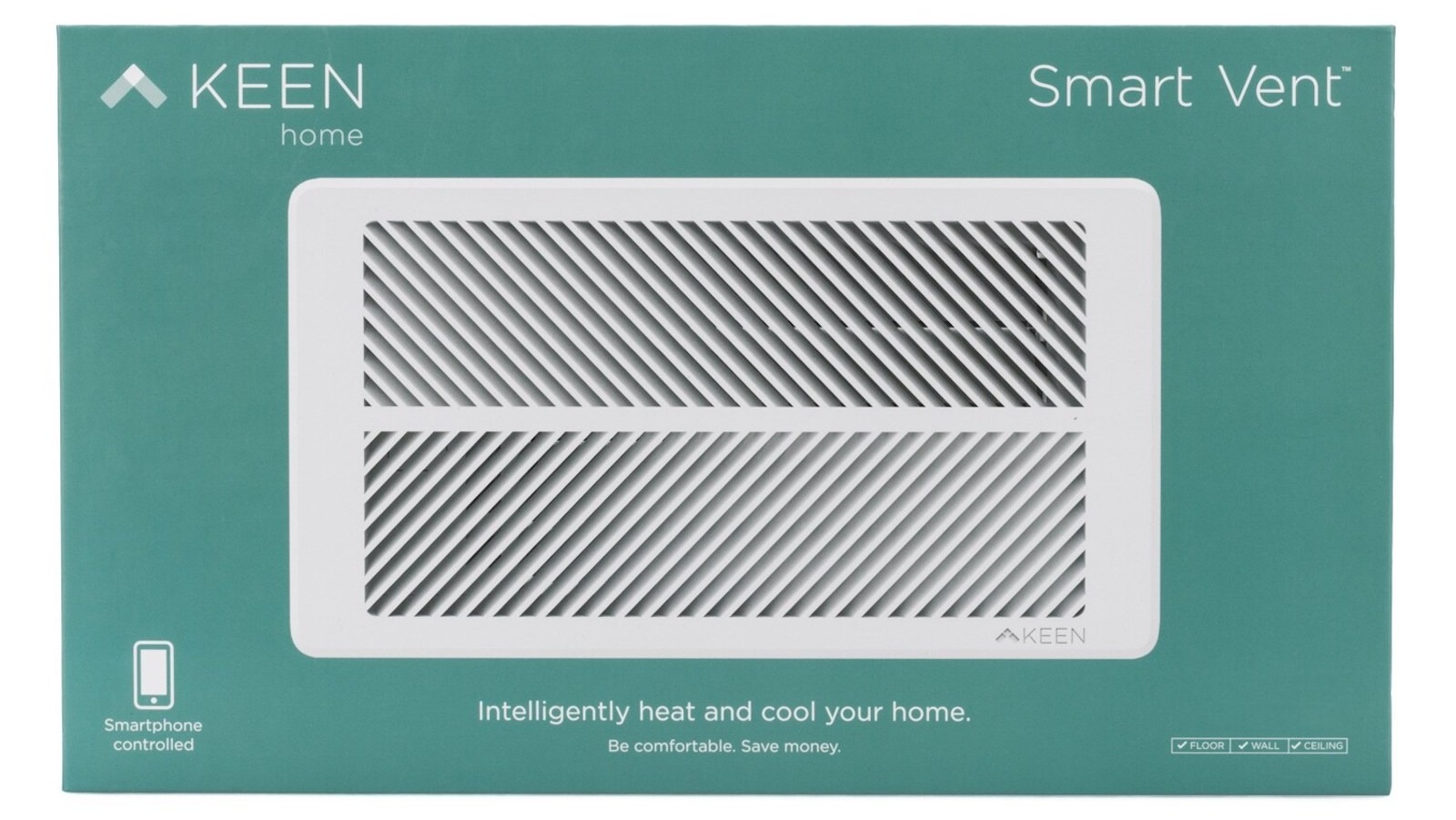
What Happened To Keen Home Smart Vents From Shark Tank Season 6? – SlashGear
On February 20, 2015, the 20th episode of the sixth season of “Shark Tank” premiered on ABC. The third of four companies pitched to the Sharks that week was Keen Home, an internet-connected vent to use with existing HVAC systems that the founders claimed would help balance out unevenly heated/cooled rooms.
As edited and aired, with Lowe’s having pre-ordered thousands of units, the segment quickly got down to business. Four Sharks showed interest, but in the end, Robert Herjavec offered the best deal while showing the best understanding of Keen Home’s business model, so the vent company’s co-founders accepted his terms. The deal closed and went well enough at first to get a “Shark Tank Update” segment the following year, with Keen Home subsequently being acquired by a bigger HVAC tech company two years after that.
In 2020, though, all of Keen Home’s blog and social media pages stopped being updated, while customer complaints started piling up. After such a good start for the smart vents company, what happened?
What happened to Keen Home Smart Vents on Shark Tank?
 ABC/Hulu
ABC/Hulu
Keen Home co-founders Ryan Fant and Nayeem Hussain entered the Tank asking for $750,000 for 10% of Keen Home, their internet-connected HVAC vent business. The Keen Home Smart Vents, with help from a mobile app, help redirect airflow to rooms that need more or less heat or air conditioning at a given moment. (Though the setup would later include temperature sensors, they were not part of the package at the time.)
Kevin O’Leary was skeptical of the valuation, as their outside funding to date had valued the company closer to $5 million, but the news that 35,000 units had been pre-sold to Lowe’s — albeit with two years of exclusivity in the home improvement space — helped explain that. Mark Cuban opted out because he felt the vents were more a feature than a product while being too far away from licensing it to a bigger company, as did Lori Greiner, who thought the product was too confusing.
O’Leary offered $750,000 for 25%, feeling there hadn’t been enough growth for the asking price, while Daymond John matched the offer with the caveat he wanted manufacturing rights, only to later lower it to 20%. Robert Herjavec wasn’t troubled by Mark’s “feature” assessment and offered $750,000 for 20%, and at that point, the discussion shifted to how Fant and Hussain didn’t want to do a “down round” or sell at a lower valuation than the last investor bought in at. So Kevin shifted to a 36-month $750,000 loan at 8.5% for 10% equity, and Lori was willing to split that deal, but then Robert countered with $750,000 for 13% (just under a $5.8 million valuation), which was accepted.
Keen Home Smart Vents after Shark Tank
 ABC/Hulu
ABC/Hulu
Just 14 months after their episode aired, Keen Home got an official “Shark Tank Update” in episode 26 of season seven, which premiered on April 29, 2016. There, Ryan Fant said that since closing their deal with Robert Herjavec, they’d had over $1.6 million in sales. In the segment, Robert visited their offices, where Fant and Nayeem Hussain showed off a new product, a filter for the existing vents that could help with air purification and odor neutralization. The day that the episode aired, The New York Observer published an article about the segment, where Fant explained that though the meeting with Herjavec was legitimate, it was staged in that it was coordinated by “Shark Tank” and not representative of their usual interactions with him.
In the interim, per the post on Keen Home’s website about the segment, it missed its projected summer 2015 delivery windows for preorders, but those ended up shipping in November 2015. “Since launch, we have proudly shipped more than 28,000 units to thousands of customers and hope to grow that number by 10X over the next 12 months,” Hussain added in the post.
Not all news was good, though. The most notable professional review, from CNET, was very negative, and even when it was updated after some firmware fixes, the review wasn’t great, with David Priest giving the vents a score of 6.6 out of 10. “Keen Home’s Smart Vents might be great products six months from now — if integration and automation expand considerably,” he wrote. “At this point, I’m not sure whether to be skeptical because of Keen’s near-broken first effort, or to be hopeful because of its quick recovery.”
In March 2017, Keen Home applied for a patent on the Smart Vents, which was eventually approved in December 2019.
Is Keen Home still in business?
 Ecovent/Facebook
Ecovent/Facebook
On July 1, 2019, ConnectM Technology Solutions announced that it had acquired Keen Home. “Providing a wide range of industry-leading residential smart HVAC zoning products, the New York City-based business supports ConnectM’s continued growth plans and accelerates entry into new and contiguous markets,” read the press release. “Along with the 2017 acquisition of Ecovent Corporation, the acquisition of Keen Home positions ConnectM as one of the industry’s leading providers of indoor climate and health solutions.”
A few weeks later, Keen Home published a blog post about the deal. “While the companies took different approaches — Keen Home developed a flexible DIY solution that homeowners could add to as their needs arose, while Ecovent Systems built a robust whole home solution with optional pro installers — they were ultimately solving the same problem, which up until the point the HVAC industry had all but ignored,” it said. “Other similar companies have sprung up since, but none have reached the scale and reliability of Keen Home and Ecovent.”
Long-term, though, it looks like it didn’t work out. For starters, Lowe’s no longer carries Keen Home products, and the only relevant Google Shopping hits are for secondhand listings on eBay and Mercari. The Keen Home blog and social media pages haven’t been updated since mid-2020, and though the company’s website looks functional at first glance, a deeper look reveals red flags.
The shopping pages for the vents and vent accessories list them as “out of stock,” while other items show as “sold out” after being added to your cart. (Wayback Machine caches show this has been the case for over a year, with most vent sizes out of stock going back even longer.) Better Business Bureau complaints from 2022, meanwhile, repeatedly mention customer service emails bouncing.
What’s next for Keen Home’s founders?
 Brian Ach/Getty Images
Brian Ach/Getty Images
Though it’s not clear why, the LinkedIn pages for both Nayeem Hussain and Ryan Fant show them leaving their jobs at ConnectM (“Head of Corporate Development & Head of Product” and “Head of Innovation & Operations,” respectively) a few weeks apart during the spring of 2022.
Hussain, in addition to continuing to run his own investment firm, immediately moved on to work as Head of Revenue for Arbor Platform, Inc. Arbor describes itself as a platform for family video biographies created with help from “an incredible team of technologists, entrepreneurs, and filmmakers from companies like Time, HBO, and Netflix.” No pricing is listed, but introductory calls to learn more can be booked through the website.
Arbor also has a peculiar Instagram page launched in May 2023 that, as of this writing, consists of 27 images, with those images’ thumbnails forming three composite images featuring vague platitudes about the service. It has not been updated at all since those composite images were posted at the time of its launch.
Hussain has a public-facing Twitter/X page but rarely updates it and doesn’t talk about his work on it. Fant, meanwhile, took a job with Koch Industries as Director of Innovation a few months after leaving ConnectM. He left in June 2023 and doesn’t have a public-facing, non-LinkedIn social media presence.





























































:max_bytes(150000):strip_icc()/GettyImages-172156217-aeefcf10e2374e8089c4b33f5d34f1b9.jpg)

